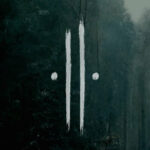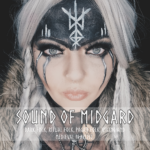| Producer of Dark Era, Medieval Era, Celtic Era etc. |
Many, if not all, musicians use sound libraries for their music productions.
Eduardo’s Libraries consist of recorded sounds from rare instruments which are then combined into a library and can be played by other artists via a keyboard to form their melody or rhythm with that Instrument.Especially in neo-folk, medieval/dark ages, or ethnical compositions Eduardo’s libraries award winning and can be heard in countless video games, movies, and music productions.

NOTE: This is not a sponsored Interview
Q:Eduardo, thank you for taking the time to answer our questions – please introduce yourself to our readers:
Hello. I am Eduardo Tarilonte, a sample library/virtual instruments developer and composer. As a developer and composer I have always loved the sound of ancient music and instruments. They instantly transport you to a different place or time just by listening to its sounds. They have some kind of magic that touches you deep in your soul. I love composing and creating virtual instruments, but I also play accordion, keyboards, celtic harp, native american flutes and lately, shakuhachi.
Q:What motivated you to start creating sound libraries?
As a composer I have always loved computers and virtual instruments, because they give you an amazing freedom to create music from your room. I am 48 years old, but when I started playing the organ back in the 80s the sounds were very limited. Since then, I have always been fascinated by the sounds of the synthesizers and all its possibilities. When I started composing in the early 90s, the samplers and the keyboards were very expensive and the sounds were not as realistic as they are now. In those days I just dreamed of being able to afford a workstation synth.
I had the opportunity of creating my first sample library with an American company called Bela D Media in 2005. I had no money back then, so I recorded some friends for a style I really knew very well, since I have played in some celtic groups. I released Celtic Winds and I was surprised how successful it was. It even got a 5 stars review in Sound and Sound Magazine. Then I realized that making sample libraries was something I wanted to do for the rest of my life.
Q:Can you describe for us how a library is created? How do you choose the instruments, how long does the recording and editing process take, etc.?
It is pretty complicated because there are many steps involved. If any of those steps fail, or if it is not good enough, it will affect the rest.
First you need to find a good musician, not only because of his skills but also because good players usually have good instruments. You cannot sample a bad instrument.
Choosing the instruments is not easy. I like making big libraries with a lot of instruments, in such a way that the composer will have a big sound palette to choose from.
Recording is probably the most important part. If you have good recordings, then you have the library. But it is not only important the quality of the recordings, one of the most time consuming parts is choosing what to record and how to implement that in the sample player. If you fail here, it doesn’t matter if you have good recordings. The instrument won’t sound playable enough.
After recording every possible single note, articulation or ornament, editing comes, which is probably one of the most tedious steps, but it has to be done. I like to do it by myself, so I can check out every single sample. It takes months, depending on the library. For example, Dark Era has over 20.000 individual samples.
Q:In your personal opinion: Which Instrument/patch turned out to be the best and which one was the most challenging to create?
Which one is the best is something hard to say! but the most challenging one is always the human voice. For some reason we can notice if it sounds natural or not more accurately than any other instrument. Probably because we all play it.
Tagelharpa was an especially hard one. It is a very simple instrument, but its rawness makes it very hard to make it playable in a keyboard
Q:How do you decide how complex an instrument needs to be? Articulation, different velocities, etc. ?Or adding sliders for crackle, picking sound, noise, etc. to make it more realistic.
Of course it depends on the instrument. In order to sample an instrument you must know how the instrument sounds and some of its secrets, otherwise you won’t succeed. But the point is not how complex, but how realistic it will sound in the end. To me the secret is making the instrument playable and realistic at the same time. The composer doesn’t need to know deeply how the instrument works. The library has to do it for him. It is like some guitar libraries. They are so complex that you need to be a guitar player in order to make them sound good. My first library in 2005 was probably one the first ones taking care of the noises of the instruments. I remember back then many libraries tried to be totally clean. My approach was different: clean recordings but also recording the noises of the instruments to be able to regulate them to your taste. The noises from the instruments are an important part of the sound. If you remove them, you are missing an important part of the character of the instrument.
Q:What is the most time-consuming part of building a sample-based Instrument?
As I said before, editing every single sample. Dark Era contains over 20.000 individual samples. So go figure.
Q:Our ( Artist- ) readers certainly primarily use Dark Era or Medieval Era 2 ( or also Celtic ERA ) – and they all agree that a fantastic spectrum of sounds is already covered here.Nevertheless: Are there any extensions or updates planned?
Yes! Stay tuned because some extensions are coming with lots of new sounds.
Q:What are your TOP5 favorite VSTi’s / Tools?
I am a fan of Steinberg and iZotope. Among my favorite tools are: Cubase, wavelab, iZotope RX and Ozone.
Q: Any advice you would give a new artist when it comes to recording or sound editing?
Trust your ear and your soul. No matter which gear you are using, Your ear will tell you if the sound is good and your soul will tell you if what you are recording is what you want.
This is the opportunity to share something with the world:
Be yourself. In a world full of people trying to imitate others’ music or creations, being yourself must be where you have to hold tightly not to get lost. Before a career, music is something that is really deep inside of us. It cannot just become a profession where everything is valid as far as you get money. That’s not the reason why we love music and why we started up our future as musicians



